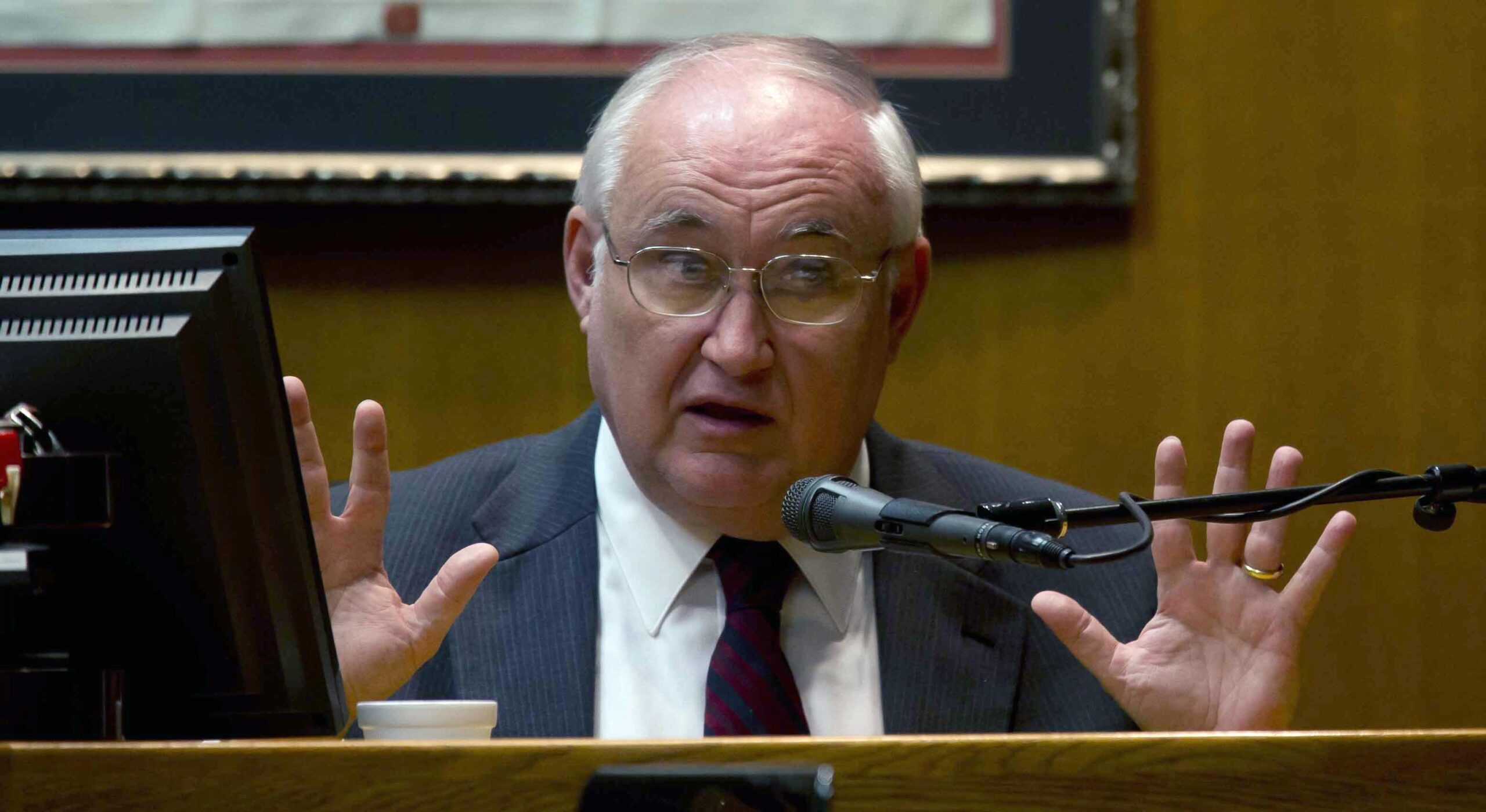Only One Prosecutor Has Ever Been Jailed for Misconduct Leading to a Wrongful Conviction
11.11.20 By Daniele Selby
Seven years ago, Ken Anderson was booked into jail in Williamson County — the same county where he once served as the district attorney — to begin a 10-day sentence for misconduct that led to the wrongful conviction of Michael Morton.
Today, he remains the only prosecutor — past or present — who has ever spent time in jail for misconduct that led to a wrongful conviction, even though 729 people exonerated since 1989 were wrongly convicted in cases involving prosecutorial misconduct. Mr. Anderson is also one of just a few prosecutors to have had their license to practice law revoked as a result of their role in a wrongful conviction.
“What happened to Ken Anderson became national news mostly because these kinds of consequences are so rarely imposed on prosecutors,” said Nina Morrison, senior litigation counsel at the Innocence Project.
But the consequences Mr. Anderson faced — a 10-day jail sentence, of which he served only five due to “good behavior” — paled in comparison to the quarter of a century Mr. Morton spent in prison for a crime he didn’t commit.
In light of this clear injustice, Texas lawmakers unanimously passed the Michael Morton Act in 2013. The legislation created an “open-file” criminal discovery policy that requires county and district attorneys to disclose most of their investigative evidence to the defense. The significant step allowed attorneys to prepare an adequate defense to avoid wrongful conviction.
However, a recent Texas Supreme Court case involving Eric Hillman, a former assistant district attorney in the Nueces County District Attorney’s Office, highlighted a major flaw of the Michael Morton Act. Mr. Hillman filed a wrongful termination lawsuit alleging he was fired for refusing his supervisor’s order to withhold exculpatory evidence from a defendant. Mr. Hillman had tried to do the right thing by refusing to violate the Michael Morton Act, in 2019, yet the Texas Supreme Court ruled that the act did not protect or other prosecutors from being fired in such circumstances. The court added that only the state’s legislature could change the law. The Innocence Project and Innocence Project of Texas are advocating for new legislation to close this loophole during the 2021 legislative session to increase prosecutorial accountability and prevent future wrongful convictions.
“Prosecutorial misconduct can be so difficult to detect because when a prosecutor deliberately hides evidence of innocence from the defense, that evidence is intended to stay hidden, and too often does,” Ms. Morrison explained. “But consequences for prosecutorial misconduct are also rare because the legal system as a whole makes it so difficult to impose meaningful sanctions on prosecutors, even when egregious misconduct is discovered.”


Williamson County is by far the most corrupt of any in Texas beginning with the arresting officer to the prosecuting attorneys. This case just scratched the surface. Just take a look at their history. I won’t give my personal details out of concern of retribution